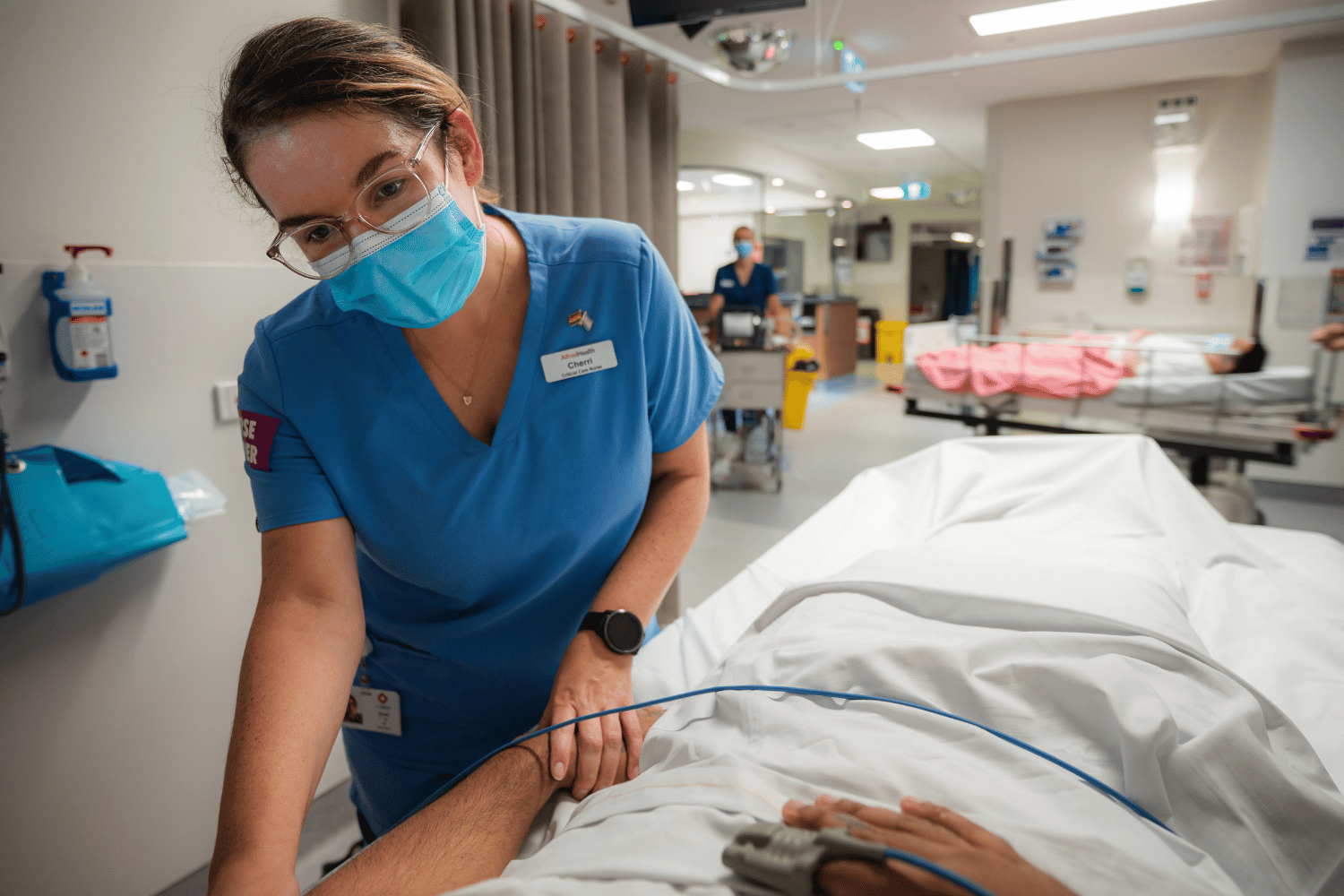Spotlight on nursing research
Prioritising Responses Of Nurses To deteriorating patient Observations (PRONTO)
Voted by editors as the most impactful research article published by BMJ Quality and Safety in 2022 and was in the top five articles downloaded

Funding: NHMRC Partnership Project Grant
Project Team: Professors Tracey Bucknall (PI), Alison Hutchinson, Julie Considine, Gill Harvey, Imogen Mitchell, Jo Rycroft- Malone, Ian Graham, Jenny Watts, Associate Professor Mohammadreza Mohebbi..
Early recognition and response to clinical deterioration in hospitalised patients is an Australian health service standard aimed at preventing serious adverse events and unexpected harm. Most hospitals use abnormalities in patient observations and nurse concern to trigger an urgent medical review. However, research has shown that observations may frequently be missed, misinterpreted, or mismanaged.
We investigated whether a clinical guideline, proactively implemented by nurse facilitators, when compared to standard implementation approaches, could improve nurses’ vital sign measurement, interpretation, treatment, and escalation for patients demonstrating physical signs of deterioration. Prioritising Responses Of Nurses To deteriorating patient Observations (PRONTO) was conducted across 36 inpatient wards at four major, metropolitan hospitals. Half the wards had guidelines disseminated by nurse managers and half had guidelines disseminated by the nurse manager with additional support from nurse facilitators, assisting staff to apply the guideline in practice.
Facilitators were engaged to work with staff, identifying how to use the guideline to improve patient safety and when to escalate care to medical teams. Patients in the intervention group had a significant shorter length of stay, by two days, than those wards who did not receive the intervention. However, the trial did not result in statistically significant improvements in nurses’ escalation of clinical concerns, reduced patient admissions to intensive care or decreased unexpected deaths in hospital.
The focus of this trial was limited to nurses’ role in detection and management of clinical deterioration. We found that nurses faced numerous challenges in the escalation of care to medical teams and seeking responses to their concerns. The impact of ward medical staff on the treatment of ward patients and escalation to external medical teams for clinical support remains unknown and warrents further research.
